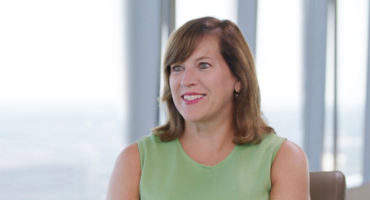I think it is safe to say that few in the asset management field have seen a year like 2022. Just as the world was trying to right itself after two years of pandemic-driven turmoil, the global economy and markets were confronted with war in Europe, soaring inflation, and aggressive policy tightening by central banks. In response, equities and bonds both struggled simultaneously, a rare occurrence in market history.
In my 30-plus years at Wellington, I’ve seen five significant market downturns, and I think one of the clear lessons is that each was very different from the last — as were the implications for asset managers and their clients. With that in mind, I’d like to share a few thoughts on how our firm is thinking about the path forward in 2023.
The macro environment won’t change overnight, and new solutions will be needed
As our macro strategists have argued for many months now, the global economic landscape has been fundamentally altered, from the end of a decade of “easy money” to the unwinding of globalization, spurred by geopolitical tensions. Looking ahead, they expect structurally higher and more volatile inflation, more differentiation in countries’ policy decisions and economic outcomes, extended periods of positive correlation between equities and bonds, and greater performance dispersion within asset classes.
Against this backdrop, clients are seeking advice on how to meet their long-term obligations to their beneficiaries. I recently completed a 25-day trip across eight countries, and common themes in my conversations with clients included a focus on differentiated return sources and opportunities in private equity and private debt, liquid alternatives, highly concentrated active strategies, and innovative sustainable investments.
Going forward, we think active management will be critical across asset classes, providing a broader and more sophisticated set of tools to help clients navigate potentially modest market returns, higher levels of volatility, changes in market structure, and the explosion in investment data.
Looking beyond the current environment, I would also note that, as I wrote recently, I personally am extremely optimistic about the power of innovation, backed by research and capital, to address the world’s most daunting challenges, from curing rare diseases to mitigating and adapting to the problems caused by climate change.
Ensuring that Wellington is positioned to support our clients in 2023 and beyond
Despite the difficult market environment this past year, we’ve continued to invest in our talent across the globe. We have strengthened our research and portfolio management teams, deepening the investment bench and providing tools and technology to help our investors generate insights in a more complex world.
For example, we’ve continued to ambitiously build out our talent in alternatives, including adding to our private equity teams, starting a private debt franchise, and diversifying our capabilities in liquid alternatives. We know from past experience that significant return-generating opportunities can emerge in periods of market turmoil — opportunities that we are committed to helping clients capitalize on, through both traditional and alternative asset classes.
We also continue to lean into the growing momentum behind sustainability and the deep impact we believe it will have on the financial markets over the next decade. We’re investing in the technology and data that portfolio managers will need in order to understand the climate-related practices and policy decisions of companies and governments around the world and the impact on economic outcomes and investment returns. We use this data to proactively engage with companies and governments (15,000+ interactions in 2022) and incorporate sustainability factors into our overall assessment of the value of portfolio holdings.
Importantly, I believe that we as a firm are well positioned to support our clients in challenging times thanks to our scale, our strong balance sheet, and our private ownership model. These attributes help make us a stable partner as well as an innovative one, allowing us to be nimble and adapt to clients’ changing needs. As an investor, I have observed many CEOs and companies in action over the years, and the ones I have admired the most have been willing to pivot when circumstances change and have taken advantage of opportunities amid uncertainty. We aspire to do the same.
We are also working to drive strong long-term results for our clients by continuing to move our diversity, equity, and inclusion efforts forward. As I’ve said before, I think there’s a growing recognition that our industry has an opportunity to make enormous strides and that bringing together people with different experience and perspectives can lead to better teamwork and better outcomes. We also think diverse and inclusive teams can help support our efforts to attract and develop the next generation of talent globally. And they align with our values and commitment to the communities in which we live and work.
Staying close to clients
Staying close to clients in times like these is our priority, and I want to thank you for your trust and willingness to partner with us in pursuit of your mission and goals.
Wishing you a happy and healthy new year,












Equity Market Outlook
In our 2023 Equity Outlook, we offer a range of fundamental, factor, and sector insights as we look to 2023.
Multiple authors